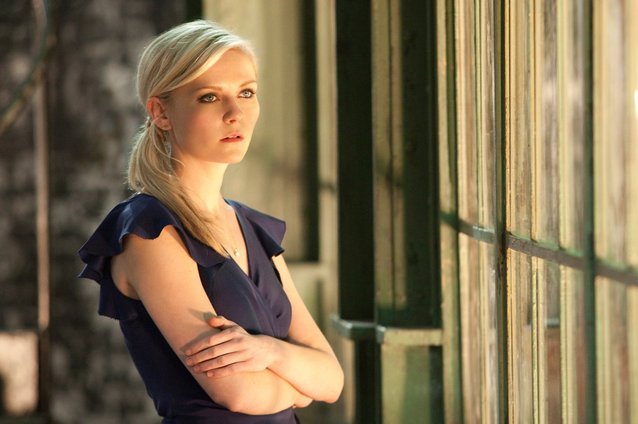
Does a working actress — especially one of the most high-profile of her generation — have a responsibility to be a feminist? That’s the question that was raised when quotes from an interview with Kirsten Dunst that appears in the May issue of Harper’s Bazaar UK became public last week.
“I feel like the feminine has been a little undervalued,” she told the magazine. “We all have to get our own jobs and make our own money, but staying at home, nurturing, being the mother, cooking — it’s a valuable thing my mom created.”
“And sometimes, you need your knight in shining armor,” she continued. “I’m sorry. You need a man to be a man and a woman to be a woman. That’s how relationships work.”
When the comments became public last week, a variety of feminists took to blogs and social media to decry Dunst’s opinion on gender roles. Even some men took offense at the comments that they believed called guys out for not being manly enough. Dunst, however, made her comments while talking about herself in an interview to promote her movie The Two Faces of January. She didn’t say it in front of a Congressional hearing or at a political fundraiser. It wasn’t said in any context that was meant to convey anything beyond a personal opinion and preference – despite the fact that her wording conveyed a personal preference as a more generalized universal.
So, why is that offensive to some? Why should we care if someone like Dunst would prefer to have a more “traditional” gender role within the confines of her relationship?
When Meryl Streep spoke out about her perception of Hollywood racism and gender bias — accusing Walt Disney of being a perpetrator while he was alive — she was largely applauded for having the conviction to say what she felt was true. In reality, Streep was herself largely just giving her opinion; with a handful of examples to back it up… she wasn’t publishing a detailed study on the history of women and minorities within the entertainment industry.
At this stage, we should be able to appreciate the opinions of both Streep and Dunst, agreeing or disagreeing as one sees fit without attacking the person who expressed it. Just as Streep is fully within her rights to be, in her words, a “rabid, man-eating feminist,” so then is Dunst within hers to have a seemingly contrary position.
We say “seemingly” because the thrust of Dunst’s comments were aimed at personal relationships, not any overtly sociopolitical issues. It’s not impossible for someone to value the rights of women in the workplace and in society as a whole, and still choose to adhere to a more “traditional” role within the confines of a relationship. There really shouldn’t be any right or wrong way to be a feminist or for a woman to express her opinions on femininity.
Attacking Dunst for her comments led to outlets like Fox News jumping to the actress’s defense and holding her up as a beacon of right-wing conservative ideals… which more than likely was not what Dunst was going for. Turning the whole thing into a liberal vs. conservative argument is reductive and facile since as a society, we should be able to discuss issues related to gender without either side being dogmatically asserted.
Like Streep, Dunst is entitled to her opinion and to live her life the way that she sees fit without having to deal with backlash over it. The only definition of femininity that she should adhere to is her own.


